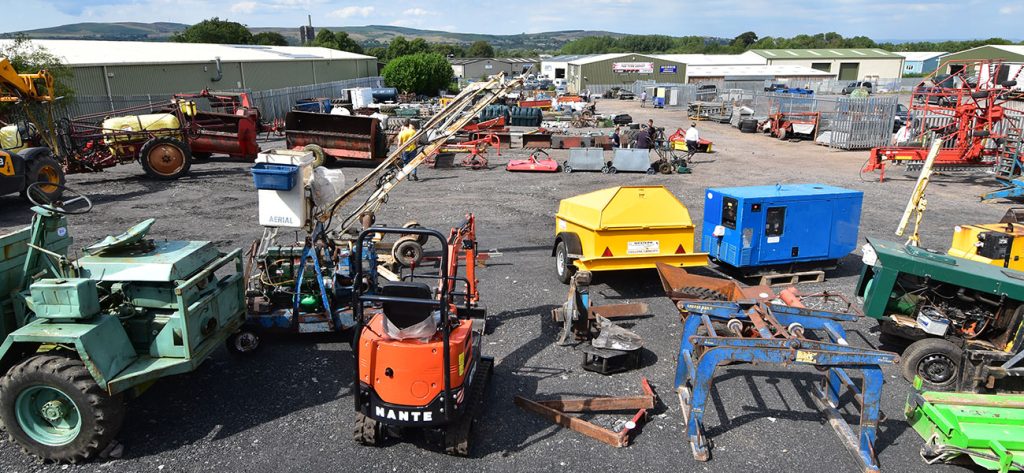
Machinery auctions have gained popularity as a means for businesses and individuals to engage in the buying and selling of used equipment. These auctions are usually conducted by auction houses or online platforms offering a range of machinery including construction equipment, farming tools and manufacturing machines.
One key advantage of machinery auctions is the opportunity to acquire equipment at a cost compared to buying brand. This proves beneficial, for businesses or individuals operating on tight budgets. Moreover auctions provide sellers with a method to swiftly sell their used equipment and create space in their facilities.
However it is crucial for buyers to conduct research and inspect the equipment carefully before placing bids. Machinery sold at auctions typically comes “as is ” meaning there are no guarantees or warranties provided. Buyers should also be mindful of any charges such as buyers premiums or shipping costs that may be added to the price. In summary machinery auctions offer an avenue, for purchasing and selling equipment; nevertheless it is important to approach them cautiously with a clear understanding of the process.
Gaining Insights into Machinery Auctions
Machinery auctions have become increasingly popular as they offer businesses and individuals an opportunity to procure equipment.To make decisions it’s important for buyers to understand the types of auctions the benefits of purchasing at an auction and the various auction formats.
Types of Machinery Auctions
There are types of machinery auctions each, with its unique characteristics. The common ones include;
auctions; These auctions take place in person, where bidders physically attend the auction site.
Online auctions; These auctions occur entirely on the internet allowing bidders to place their bids through a website or app.
Timed auctions; These auctions have a specific start and end time within which bidders can place their bids.
Key Benefits of Buying at Auction
Purchasing machinery through an auction can offer advantages such as;
pricing; Auctions often lead to lower prices compared to traditional purchasing channels.
Wide selection; Auctions provide buyers with a diverse range of equipment from various sellers giving them more options to choose from.
Transparency; Auctions typically offer detailed information about the equipment being sold including its condition and history.
Common Auction Formats
Machinery auctions commonly utilize formats that include;
Reserve auctions; In these types of auctions sellers establish a price, for the equipment being sold.If the bidding does not reach that price the seller is not obliged to sell the equipment.
There are types of auctions;
Absolute auctions; In these auctions the equipment is sold to the bidder regardless of the final price.
Sealed bid auctions; In these auctions bidders submit their bids in writing and the highest bidder wins the equipment.
Understanding these auction formats and knowing the advantages of buying at an auction can help buyers make decisions when purchasing machinery.
Preparing for a Machinery Auction;
When getting ready, for a machinery auction there are factors to consider to ensure that you are well prepared and can make informed decisions. This section will discuss aspects to think about before attending a machinery auction.
Research and Valuation;
Before participating in a machinery auction its crucial to conduct research and valuation. This will allow you to determine the market value of the equipment you intend to purchase. By doing you can make decisions and avoid overpaying for any machinery. You can conduct research by reviewing auction catalogs, advertisements listings well as seek advice, from industry experts who can provide accurate valuations of the equipment.
Tips, for Inspection
Before the auction it’s crucial to inspect the equipment to ensure it’s in condition and meets your requirements. We recommend conducting an in person inspection. If possible, bringing along an expert to help assess its condition. During the inspection pay attention to any signs of wear and tear and consider the age of the equipment.
Registration and Bidding Process
To participate in a machinery auction you’ll need to register in advance and obtain a bidder number. It’s advisable to register to avoid any last minute rush. During the auction you can place bids either in person or online. It’s important to understand how the bidding process works and set a budget beforehand to avoid overspending.
Payment and Logistics
Once you’ve successfully won a bid on equipment it’s time for payment and arranging transportation. Its recommended that you have a payment plan before the auction and ensure that you have funds for the transaction. Additionally make arrangements, for transportation ahead of time. Ensure that proper loading procedures are followed with packaging.
In conclusion preparing for a machinery auction requires consideration and strategic planning.
To have an auction experience it is important to conduct research and valuation thoroughly inspect the equipment familiarize oneself with the bidding process and make necessary arrangements, for payment and logistics.